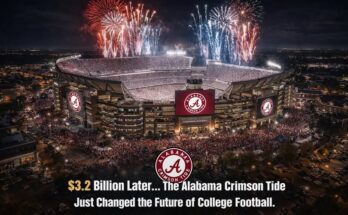Recent reports indicate a significant incident at Dodger Stadium, where the Los Angeles Dodgers organization stated they prevented agents from U.S. Immigration and Customs Enforcement (ICE) from entering the premises. This development unfolded amidst heightened tensions in Los Angeles concerning federal immigration enforcement actions.
According to a statement released by the Los Angeles Dodgers on their official social media channels, “This morning, ICE agents came to Dodger Stadium and requested permission to access the parking lots. They were denied entry to the grounds by the organization. Tonight’s game will be played as scheduled.” This public declaration by a major sports franchise immediately garnered widespread attention and sparked considerable debate across social media and news outlets.
The Dodgers’ statement suggests a deliberate decision to refuse entry to federal agents seeking access to their private property. This stance is particularly notable given the current political climate and the ongoing immigration raids that have been intensifying across the Los Angeles area. The team’s action was seen by many as a powerful show of solidarity with the city’s large immigrant community, a significant portion of the Dodgers’ fanbase.
However, the situation was met with immediate counter-statements from federal authorities. Shortly after the Dodgers’ announcement, the official ICE account on X (formerly Twitter) posted, “False. We were never there.” This direct contradiction created further confusion and prompted a clarification from the Department of Homeland Security (DHS). A spokesperson for DHS stated that while federal vehicles were indeed present in the stadium parking lot, the agents were from Customs and Border Protection (CBP), not ICE, and their presence was “very briefly, unrelated to any operation or enforcement.”
Despite the federal agencies’ denials and clarifications, eyewitness accounts and local media reports presented a more complex picture. Journalists and protesters on the scene observed vehicles and individuals in tactical gear near Dodger Stadium entrances. Some reports indicated seeing Border Patrol patches on agents’ uniforms. Given that both ICE and CBP fall under the umbrella of the Department of Homeland Security, the distinction between the two agencies might be less significant to the public, especially amidst intense public sentiment regarding federal immigration enforcement.
The incident at Dodger Stadium occurred against a backdrop of increasing anti-immigration enforcement protests in Los Angeles. The city has experienced demonstrations, some involving confrontations, in response to intensified federal sweeps targeting migrant workers. These operations have been part of a broader effort by the current U.S. administration to increase arrests and deportations, and have included the controversial deployment of National Guard troops and U.S. Marines to the area, a move that has drawn opposition from city leaders and California’s Governor.
The Dodgers, as an organization, had faced prior criticism for their perceived silence on the ongoing immigration crackdown. This silence was particularly scrutinized given the team’s substantial Latino fanbase. The incident involving the federal agents at the stadium also came on the heels of a moment where a Latin American pop singer, Nezza, sang the U.S. national anthem in Spanish before a Dodgers home game, reportedly defying team officials and stating it was her duty to “represent my people.”
The Dodgers’ decision to deny entry to the federal agents, regardless of the specific agency involved, was widely praised by immigrant rights advocates, local politicians, and many fans. California Governor Gavin Newsom reportedly commended the Dodgers for opposing raids that impact immigrant communities. Dodgers player Kiké Hernández also publicly expressed his frustration and sadness over the situation, defending the immigrant community of Los Angeles as his “second home” and emphasizing that “ALL people deserve to be treated with respect, dignity and human rights.”
Conversely, the team’s action drew criticism from some who argued that sports organizations should avoid mixing with politics. Conservative commentators, for instance, questioned the team’s stance. However, many saw the Dodgers’ move as a courageous act of advocacy, reflecting shared community values and sending a powerful message of solidarity, particularly to their Latinx fanbase. The incident has ignited broader conversations nationwide about the intersection of sports, politics, and social justice, highlighting the increasing pressure on public venues and major corporations to take stances on contemporary social issues.
The Dodgers, following the incident, were reportedly planning to announce initiatives meant to support immigrant communities affected by the raids. Dodgers President Stan Kasten confirmed that an announcement regarding their community programs, which was scheduled for the day of the incident, had to be delayed while more details were firmed up due to the unexpected events. This suggests a more proactive approach from the organization in addressing the concerns of its community.
The event at Dodger Stadium serves as a stark reminder of the ongoing debate surrounding immigration enforcement and the role of private entities in navigating federal operations. It thrust a prominent sports franchise into a highly charged political discussion, forcing them to take a public stand that resonated deeply with their community and garnered national attention. The discrepancy in statements from the Dodgers and federal agencies also highlights the challenges in confirming details in rapidly evolving situations involving sensitive issues. Regardless of the differing accounts, the incident underscored the power of a major sports team’s platform to influence public discourse and demonstrate allegiance to its community values.


